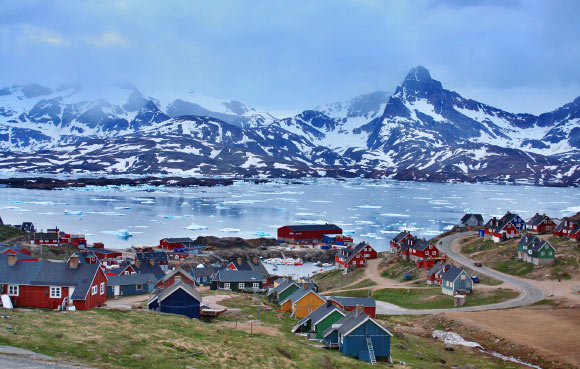Warming temperatures are causing mosquitoes in Greenland to grow faster and emerge earlier, boosting their population and threatening the caribou they feast on, says a new study published in the Proceedings of the Royal Society B: Biological Sciences. The study predicts the mosquitoes’ probability of surviving and emerging as adults will increase by more than 50% if Arctic temperatures rise two degrees Celsius.
Climate change is raising temperatures globally, which influences insect physiology, growth rates and survival, including their ability to elude predators.
Arctic mosquitoes develop in shallow temporary ponds of springtime snowmelt on the tundra, where their top predators are diving beetles.
Using field observations and controlled experiments, Dartmouth College scientists measured the impacts of increasing temperatures on development and death rates from predation on young mosquitoes in western Greenland.
The team, led by Dr Lauren Culler, then developed a demographic model to evaluate how temperature affects their survival from the immature stage to adult biting stage across a range of temperatures in future climate change scenarios for the Arctic.
The results show that warmer spring temperatures caused the mosquitoes to emerge two weeks early and shortened their development time through the larval and pupal stages by about 10% for every one degree Celsius increase in temperature.
Warming increased the number of mosquitoes being eaten by diving beetles, but the mosquitoes’ accelerated growth in their vulnerable juvenile stages lessened their time with aquatic predators, which ultimately increased their chance of surviving to adulthood.
With a 2 degrees Celsius warming scenario, the model predicts the mosquitoes’ probability of survival will increase by 53%.
Arctic mosquitoes’ reproductive success depends on the females finding a blood meal, which is expected to increase because warming more closely synchronizes their life cycle with caribou calving.
The calving season benefits mosquitoes by giving them a larger, less mobile herd to feed on, including vulnerable calves.
“Increased mosquito abundance, in addition to northward range expansions of additional pest species, will have negative consequences for the health and reproduction of caribou,” Dr Culler explained.
_____
Lauren E. Culler et al. In a warmer Arctic, mosquitoes avoid increased mortality by growing faster. Proceedings of the Royal Society B: Biological Sciences, published online September 16, 2015; doi: 10.1098/rspb.2015.1549








